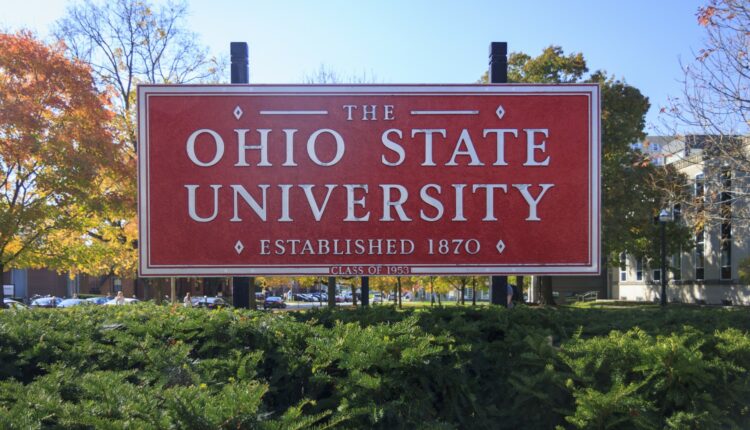Ohio State University Launches Composting Program
Beginning this fall, all resident rooms in the Smith-Steeb residence hall at The Ohio State University will have small composting bins. That’s 10 floors, around 1,000 students, all taking part in a pilot program that will test automatic enrollment in the university’s composting program.
“The Smith-Steeb program is really exciting,” said Lilly Des Rosiers, a fourth-year student and director of the Undergraduate Student Government’s (USG) sustainability committee. “It’s a huge building. When we found out that’s where the pilot was happening, all we could think was ‘that’s so many students!’”
While Des Rosiers has been involved in sustainability efforts since high school, many students come to Ohio State less familiar with things like composting.
“Having bins in a residence hall is a great opportunity for younger students to explore sustainability,” she said. “It’s great to see the initiative that Ohio State is taking to get students involved.”
When an opt-in composting program began in 2022, nearly 10% of students on the Columbus campus participated. This was encouraging to USG, the Office of Student Life and Facilities Operations and Development, the units that worked together on the effort. With a successful small sample, the next step was to scale up to something larger, like a residence hall, said Tom Reeves, Student Life’s director of sustainability.
“A building of that size gives us an opportunity to address concerns like smells, pests, spills,” he said. “We want to know if this is going to create more work for the custodial staff – things I didn’t have answers for at the end of the last school year.”
The first year will focus entirely on pressure-testing the program. Reeves wants to have hard data for things like trash diverted, bin contamination and service requests.
“One of the challenges we have with sustainability initiatives is money,” Reeves said. “I need to be able to address those fears with data. … We want more trash diversion, yes, but for me it’s also about things that may not be as obvious: What kind of training is needed for our staff and students? What worked well? How do we track issues?”
Reeves is particularly interested in how to best educate students about the pilot: QR codes, in-person trainings programs, signs and video modules will all be available. In addition, resident advisors (RAs) in Smith-Steeb will know how to use the bins.
“When students have a question, the first person they go to are their roommates. But after that, they’re going to their RA to get more information,” he said. “I need to be able to tell them, ‘Here’s where the information is. Here’s where you can direct students.’”
While concerns about things like smells and pests are common, both Reeves and Des Rosiers say those aren’t issues if students keep their bins clean – the same is true for their trash cans. This is part of the college experience, Reeves said. Students are often living on their own for the first time and are learning new life skills together.
“You’re learning things. Part of our education program goes beyond composting and addresses things like how do you avoid bugs altogether?”
After all, Reeves said, the residence halls are generating the same amount of waste as they did before the program. The composting bins are just a new way to collect it.
Reeves knows that students will help one another once the pilot is underway. They are the core of the program, he said.
“This has been a student-driven thing,” he said. “Those of us in sustainability have wanted to do this for a while but the students are the ones who pushed it forward. It’s the power of their voice. I can’t give them enough credit.”

